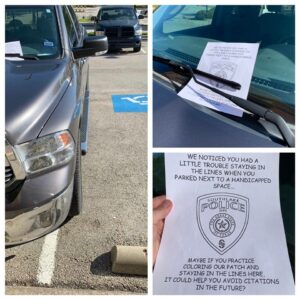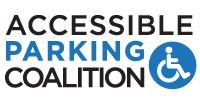Stay in the Lines Coloring Page!
At the Southlake DPS, we try to avoid snark and sass (we REALLY do ?), but sometimes our fair citizens make it hard. Please stay in the lines when you park ESPECIALLY if it’s next to a handicapped spot or you might be the recipient of one of our new fliers. Be kind and drive kind and park kind! Let this graphic be an attention grabbing example so we don’t have to end up going to FedEx Kinko’s and making like thousands of copies of these.

Source Credit: Southlake DPS
DOWNLOAD: Stay in the Lines Coloring Page!
